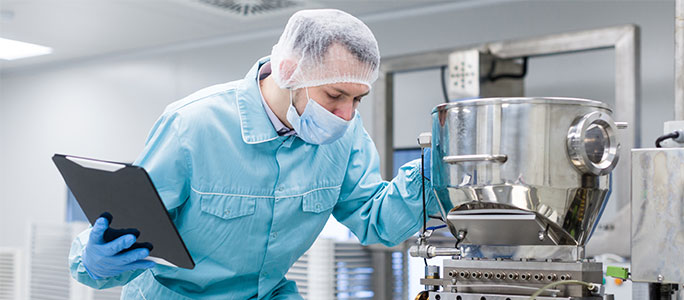How Pharmaceutical ERP Can Help You Meet Pharma Safety Standards?

Safety standards in the pharmaceutical industry are regulations, guidelines, and procedures that must be followed to ensure medicines are safe, effective, non-contaminated, and suitable for consumption. These standards are crucial as they protect public health, ensure quality, and help build consumer trust. Failure to meet these standards can have serious repercussions, putting consumers' lives at risk or causing harmful side effects. It can also damage a company’s reputation and result in legal obligations and fines. Thus, manufacturers around the world, including the UK, are looking for ways that aid focusing on meeting safety standards across the entire supply chain - from the first step, i.e., sourcing the raw material to the final delivery of products:
- Sourcing phase: Safety standards in this phase ensure that the raw material is procured from verified suppliers, free from contamination, and meets the set quality benchmarks. Manufacturers can achieve this by verifying supplier certifications, conducting regular audits, and performing rigorous testing on procured raw materials.
- Production phase: Safety standards in this stage ensure that machines are clean, well-maintained, and fully equipped, while workspaces remain sterilized. These standards help prevent adulteration, unwanted mixing of materials, worker safety, and other hygiene-related mistakes. Quality inspections performed here verify that products meet safety, potency, and efficacy standards all along the production process, ensuring consumers receive safe and reliable medications.
- Distribution phase: At this phase, the products are stored and transported under the right conditions to prevent damage or degradation to achieve safety standards. For example: Cold chain maintenance for temperature-sensitive products like insulin and biologics need to be continually monitored and recorded.
How pharma manufacturers in the UK can effectively manage these safety standards?
The answer lies in leveraging Pharma ERP software—a comprehensive solution designed to ensure safety, compliance, and operational efficiency. Here’s how it can help:
- By monitoring materials in Inventory Management: The inventory management system in ERP software systems help monitor raw materials and finished goods in real-time, ensuring they are stored under the right conditions, such as proper temperature and humidity.
- By adhering to Standard Operating Procedures (SOPs): Pharma ERP embed SOPs into workflows, automating processes to ensure adherence at every step.
- By staying compliant: ERP software helps UK pharma manufacturers follow regulations like MHRA, GMP, GDP, and FMD by keeping them properly documented, automating compliance checks, and flagging discrepancies.
- By securing formulas: The formula module of pharmaceutical ERP software helps pharma manufacturers protect sensitive formulas with role-based access controls.
- By creating accurate labels and dosage control: ERP software solution upholds safety standards by automating label generation, verifying ingredient quantities, and preventing formulation errors.
- By determining Non-Conformance (NC) and performing CAPA: Pharmaceutical ERP systems detect real-time issues during production, packaging, or shipping and trigger corrective actions.
One pharma software that can help achieve these safety standards easily in the UK is BatchMaster UK ERP Software. It’s a tailor-made, pharma-specific software designed to meet the unique needs of the industry. By automating compliance, ensuring accurate formulations, tracking non-conformities, and guiding corrective actions, BatchMaster ERP helps maintain the highest safety standards throughout production. Contact us at sales@batchmaster.co.in to learn more.